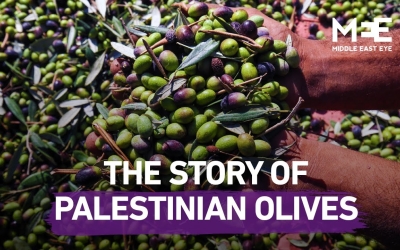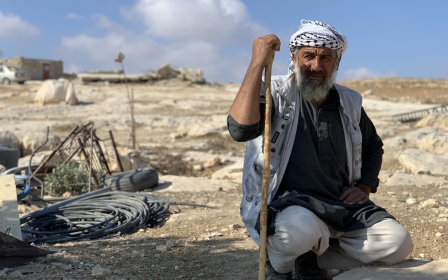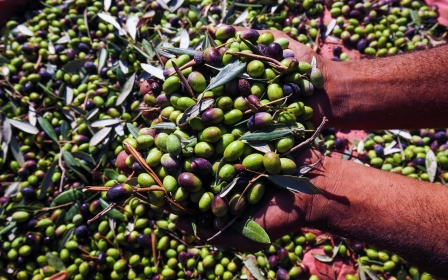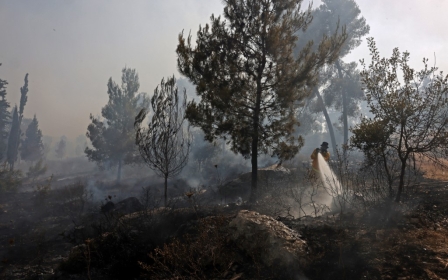West Bank: Israeli settlers uproot hundreds of Palestinian village's olive trees
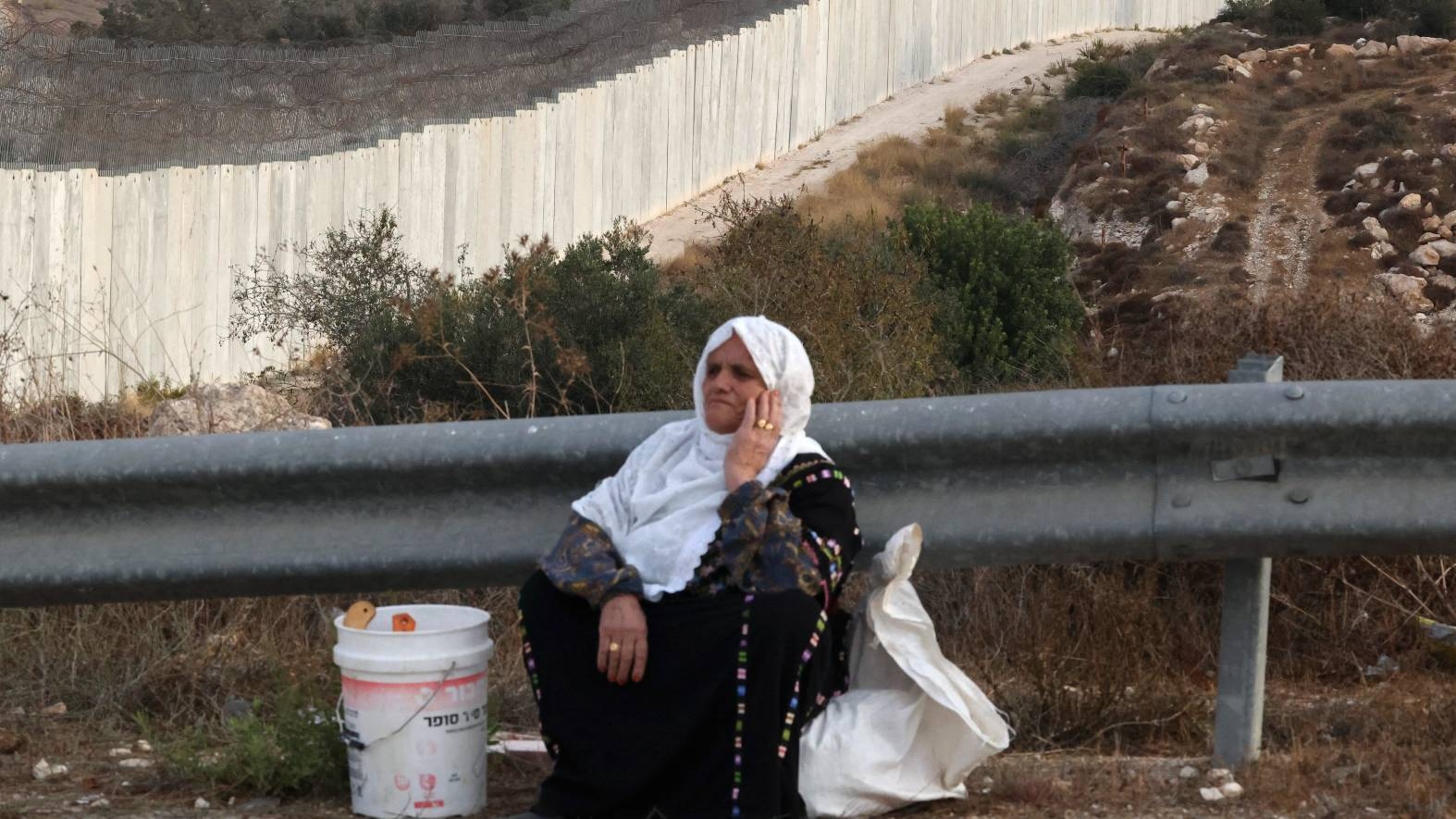
Israeli settlers uprooted more than 300 olive trees belonging to Palestinian villagers in the central occupied West Bank, at the peak of olive harvest season.
Farmers from al-Mazraa were surprised to find some 300 olive trees uprooted and broken on Thursday morning.
Saadeh Zaqout, the head of the council's village, told Wafa news agency that the olive trees belonged to Palestinian farmers who have plots near the illegal Israeli settler outpost of Kerem Reim, which is part of the settlement bloc of Gush Talmonim northwest of Ramallah.
Zaqout said that Israeli armed forces had recently blocked a road in the area with cement cubes to prevent Palestinian farmers from accessing their olive trees.
The olive harvest season, which runs between October and November, is a lifeline for 80,000 to 100,000 Palestinian families in the occupied West Bank.
According to UN data, almost half of Palestinian agricultural lands are planted with an estimated 10 million olive trees in the West Bank and besieged Gaza Strip.
The International Committee of the Red Cross (ICRC) said that more than 9,300 olives trees belonging to Palestinian farmers have been damaged, cut or uprooted by Israeli settlers between August 2020 and August 2021.
Rights group B'Tselem has meanwhile reported that 1,500 trees have been uprooted or damaged since the beginning of harvest season alone.
Palestinian farmers had already suffered a 55 percent decrease in yield in the olive harvest between 2019 and 2020.
Besides poor rainfall and extreme temperatures that affected the growth of olives, Israeli authorities restrict Palestinian farmers from accessing their lands close to settlements or the separation wall - both of which have been denounced as violating international law.
The UN Office for the Coordination of Humanitarian Affairs (OCHA) noted in 2020 that settlers also "physically assaulted farmers, vandalised or set fire to their trees, or harvested and stole their produce".
On Thursday, representatives of diplomatic missions in Palestine from the European Union, United Kingdom, France, Italy, Sweden, Norway, and Belgium volunteered to harvest olive trees in the village of Qusra in the northern West Bank.
'Settlers who are responsible for crimes against Palestinians must be held to account and incidents should be thoroughly investigated by the Israeli authorities'
- Diane Corner, British Consul General
"It is disheartening to hear about persisting settler violence throughout the start of the [olive harvest] season," British Consul General Diane Corner said in a statement.
"Settlers who are responsible for crimes against Palestinians must be held to account and incidents should be thoroughly investigated by the Israeli authorities, who should take all necessary measures to protect Palestinians against such violence."
European Union representative Sven Kuhn Von Burgsdorff meanwhile emphasised that "olive trees in Palestine are not just a source of income; they are part of the Palestinian cultural and national identity".
Von Burgsdorff, who has been taunted by Israeli settlers in the past, also added that settler "attacks are unacceptable and perpetrators should be brought to justice by the Israeli authorities".
However, Israeli authorities have long been denounced for fostering what officials recently described as a "permissive atmosphere", including allowing Israeli settlers to "let off steam" to avoid confrontation with them.
Settler attacks on Palestinian villages and properties in the West Bank have more than doubled in the first half of 2021.
Middle East Eye propose une couverture et une analyse indépendantes et incomparables du Moyen-Orient, de l’Afrique du Nord et d’autres régions du monde. Pour en savoir plus sur la reprise de ce contenu et les frais qui s’appliquent, veuillez remplir ce formulaire [en anglais]. Pour en savoir plus sur MEE, cliquez ici [en anglais].


